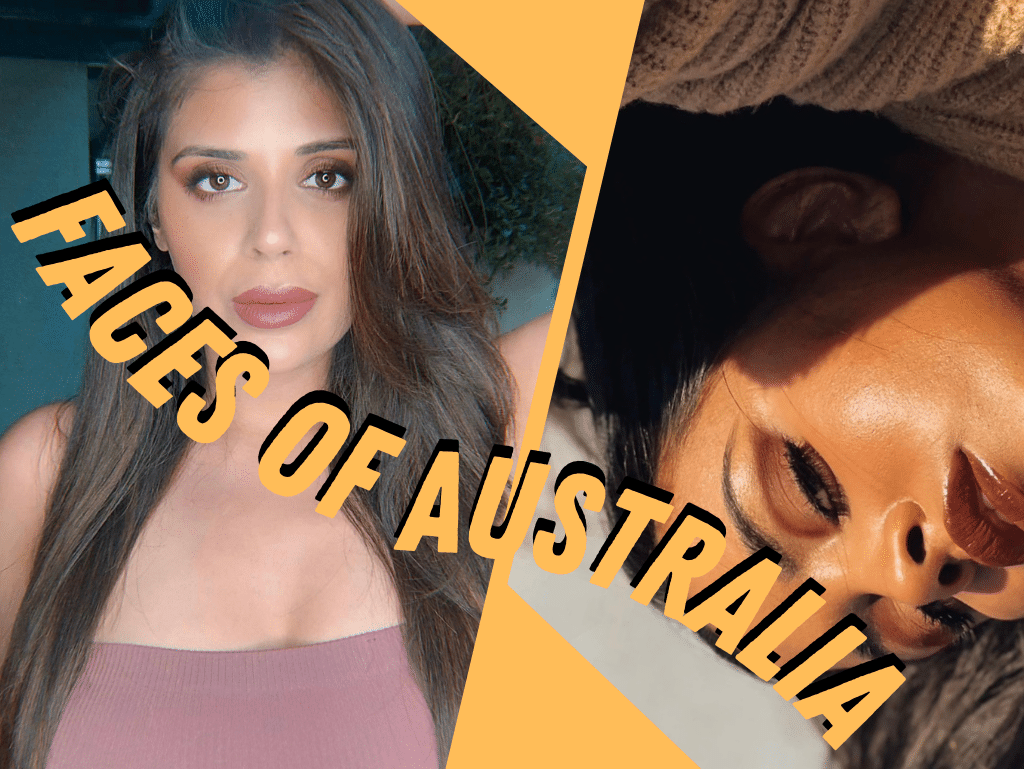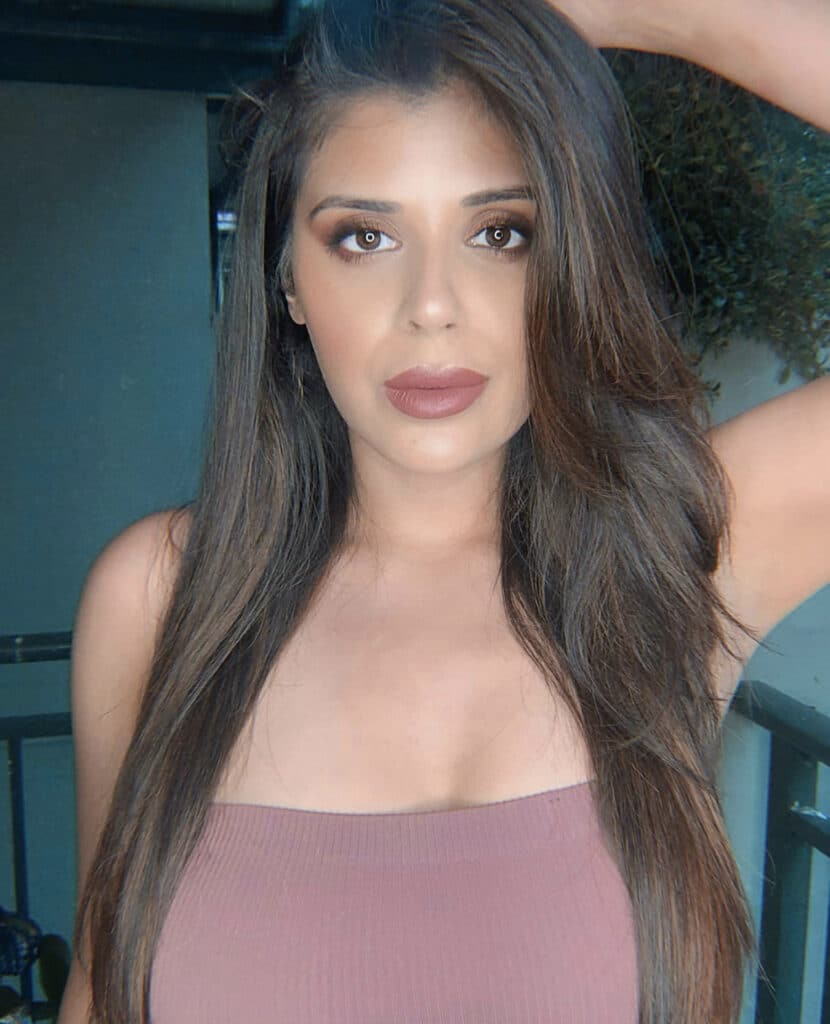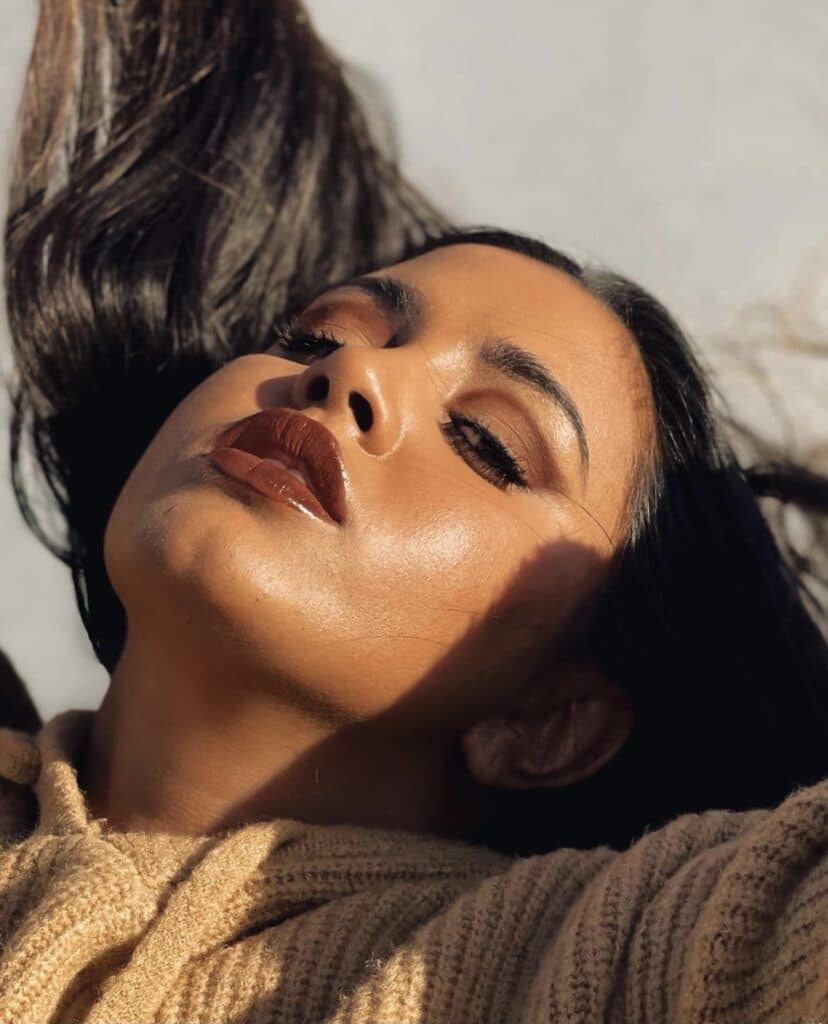
Faces of Australia is a column highlighting BIPOC creatives to bring you their stories. Creators are asked to collaborate on a makeup look that empowers, holds meaning, or describes their experience as it relates to Australian beauty standards and the Australian beauty industry. Faces of Australia is written and produced by Ruchi Page, with a mission to show the beauty industry how accessible BIPOC talent is across this diverse nation.
Episode 3: Alisha Bhojwani
The brief? The beauty of brown. Introducing skin enthusiast and marketing pro, Alisha Bhojwani. I had the opportunity to touch base with the content creator on some bizarrely relatable conversations. But first, as always, let’s dissect Alisha’s story.
Born in Hong Kong to Indian parents, Alisha’s family made the move to Australia when she was only 5-years-old. Based on many encounters, the beauty expert explains that as soon as people make the connection to her Indian background, the identity assumptions begin.
“You must be a doctor, lawyer, or accountant,” seems to be the most common assumption. Alisha confirms that “there’s always more than meets the eye” and to consider that “just because society has conditioned us to view individuals through a certain lens, it doesn’t mean we should lean into that judgment.” Alisha says things that shape her identity include her quirks, goals, dreams, sense of humour, and a strong TikTok addiction.

Now that we know to quit the assumptions and stereotyping, I asked Alisha to share the story that triggered our initial conversation back in November 2020.
How many times have you been told “you’re beautiful for an Indian?”
Upon reflection, Alisha admits she’s lost count. Our conversation continued and I, too, found myself replaying countless times I’d been given then ‘compliment’ as well. We both agree that it happens more than people realise, and often from those you don’t expect. To confirm, this isn’t just the type of comment that occurs in teen to adult years, this has been happening to Alisha since birth.
“There were the odd comments here and there as a child. People were always telling Mum how ‘cute’ I was for an Indian baby and that she should consider entering contests,” she tells me. We both relate to accepting and desensitizing ourselves to these remarks and usually thanked the individual. But why does ethnicity need to be attached to a compliment? Confusion and discomfort snowballed for Alisha after dating apps became a hot spot for this issue. Enter: major shared frustration.

So, why is this style of ‘compliment’ so problematic? Alisha explains, “for starters, it’s not a compliment.” I couldn’t agree more. It is implied that our ethnicity is confined to one beauty standard whilst remaining excluded from the current beauty norm. Alisha’s passion leaps as she says, “due to misrepresentation of WOC in the media, we are constantly shown one type of aesthetic and our construct of beauty became tied to that idea, whether or not that was the intention.” Alisha taps into the damage caused by associating a person’s level of attractiveness with their ethnicity. This becomes a problem for women of colour, as it fuels a false construct of ‘beauty’ which eventuates into selective acceptance throughout other aspects of our lives. Alisha suggests, “our society needs to shift from placing worth on physical features and begin measuring beauty by who we are and how we treat people.”
To conclude our conversation, I asked Alisha if she believes there’s an expectation for how an Indian woman is supposed to appear.
“There is 100% a strong expectation of how an Indian woman should look. Growing up as an Indian woman meant abiding by societal pressures which have impacted how I live my life. To this day, there’s an expectation of how an Indian woman is supposed to behave. ‘Don’t wear anything too revealing, make sure you know how to cook, don’t cut your hair, stay out of the sun; you don’t want to get too dark’ — just a few pressures many Indian women grew up with. It’s unfortunate, but there is an undeniable level of expectation from society, and growing up, I felt that.”
– Alisha Bhojwani, beauty expert and content creator
PRODUCTS USED







